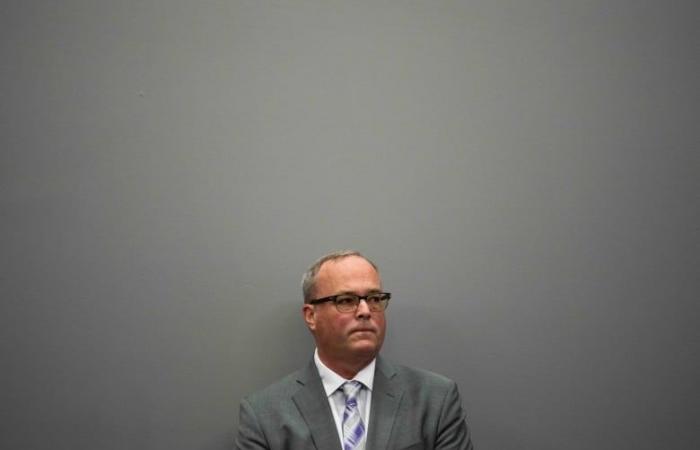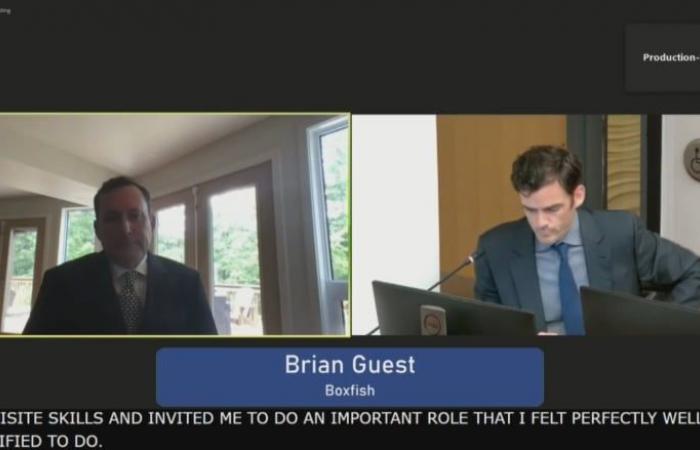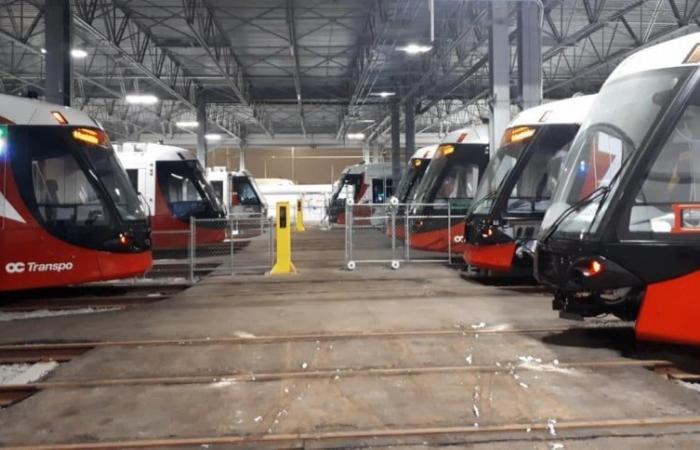Arabnews24.ca:Tuesday 6 December 2022 04:09 AM: If you think last week's scathing public inquiry report into Ottawa's light rail system is just for locals to brood over, think again.
Many of the findings in commissioner Justice William Hourigan's report raise questions about transit projects under construction in the Greater Toronto Area — projects that borrowed integral elements from the Confederation Line before they were proven or tested.
As the former treasurer for the City of Ottawa agreed during her testimony last spring, Ottawa's $2.1-billion Confederation Line was the guinea pig for LRT in Ontario.
Provincial transit agency Metrolinx then went with the same public-private partnership model, or P3, for several of its own LRT projects in the Toronto area.
In many cases, Metrolinx chose the same advisers, contract language, companies, and trains that ended up contributing to Ottawa's problem-plagued system, which opened in September 2019 more than a year behind schedule.
For Ottawa residents, that means déja vu when they see recent headlines about Metrolinx's $5.8-billion Eglinton Crosstown project — a 19-kilometre line LRT cutting east-west through Toronto — blowing past deadlines amid a lack of transparency.
'Inexperienced' advisers
The Ontario government gave the commission a mandate to scrutinize only the first stage of Ottawa's LRT, but given how many of the project's basic building blocks were used elsewhere, it might do well to read Hourigan's 664-page tome.
Hourigan found everything about Ottawa's LRT was a "first," dating to when the city initially asked for bidders a decade ago.
It was a crucial stage, he wrote, because the procurement and contract were at the core of the relationship between the city and Rideau Transit Group (RTG), the line's builder. (The two sides are now fighting in court.)
The commissioner found the city and its two key procurement advisers — Infrastructure Ontario and consultant Brian Guest — were inexperienced, which "led to real problems."
Hourigan also concluded that Infrastructure Ontario had only used this kind of P3 model on hospitals and courthouses, never for light rail systems. It took its template from those P3s and used it for Ottawa's LRT.
Infrastructure Ontario, a Crown agency, was more than an adviser to Metrolinx. It co-signed the contracts for the 25-station Eglinton Crosstown in 2015, then did the same for the 18-stop Finch West LRT three years later to connect Toronto's subway line to Humber College. Then in 2019 it co-signed for the 19-stop north-south Hurontario LRT in Mississauga and Brampton.

Same consultant
The inquiry heard from "super consultant" Brian Guest, who had worked behind the scenes in political roles — including on now-former Ottawa mayor Jim Watson's transition team — and was a key player in the city's rail office and later with Metrolinx.
Guest was not an engineer, nor did he have any experience in P3s. Yet the inquiry established that he was behind many "innovations" in the bidding phase.
Guest thought to have bidders submit a price under an "affordability cap" or risk disqualification — a move he says was also used on Eglinton Crosstown and Finch West.
He also devised having the bidder take on the risk of digging the tunnel under downtown Ottawa, in exchange for more points in the competition — which turned out well for the city after a huge sinkhole opened up on Rideau Street in 2016.
After he finished work in Ottawa in 2013, Guest moved to Toronto and Metrolinx. He told the inquiry about his passion and dedication to the Eglinton Crosstown, Finch West, and Hurontario projects.
"It was very engrossing, and I continue to this day to help deliver the Ford government's very ambitious rollout of subways and Go expansion," Guest testified in June. "I was fully engaged in the Toronto world."
Guest did not respond to a request for comment. Nor did Metrolinx answer CBC's questions about his current role. He resigned as a vice-president last January following a Toronto Star investigation alleging a potential conflict of interest after Metrolinx gave his Boxfish firm millions in contracts. The agency told the Star there was no conflict of interest, and said Guest had no influence over the awarding of contracts.

Private partners
The companies that built the Confederation Line are also working in Toronto.
ACS Infrastructure and SNC-Lavalin each have a 40 per cent ownership share in line-builder RTG, while Ellis Don owns 20 per cent.
The much larger and costlier Eglinton Crosstown contract was awarded to Crosslinx Transit Solutions, a consortium also made up of ACS Infrastructure, SNC-Lavalin and Ellis Don, with the addition of Aecon. In that case, each company owns 25 per cent.
While Metrolinx went with different companies altogether for its 18-kilometre Hurontario line, ACS Infrastructure owns a third of Mosaic Transit Group, which is building the 11-kilometre Finch West LRT.
In every project, the private companies signed onto a P3 model that sees them design, build, finance and maintain the train systems — although in the case of Hurontario, the private sector will also operate the line.
The consortia will maintain all those light rail systems for 30 years after they open, sometimes subcontracting that work as RTG did in Ottawa.
In his report, Hourigan spent ample time exploring how public infrastructure can be built and suggested governments avoid a "tunnel vision" for P3s.
He pointed out some companies have since become reluctant to bid on such fixed-price contracts, including SNC-Lavalin. Major infrastructure projects in Australia, New Zealand, and the United Kingdom have moved to a less adversarial "alliance" model, he added.
Ontario's infrastructure minister Kinga Surma, however, defended the use of P3s last week, and her office did so again when responding to this story.
"Ontario is recognized around the world for the success of its P3 program," wrote Andrea Chiappetta, Surma's press secretary. "We know that the P3 model has worked and will continue to be critical in transferring risk and protecting taxpayer dollars."
Metrolinx bought Ottawa's trains in 2017
Then there are the trains.
Ottawa residents were promised an electric train that had been tested for at least two years. Residents only learned the Confederation Line trains were prototypes using new technology through CBC's reporting, and the subsequent inquiry.
It turned out Alstom came in very late, in 2012, as RTG's train supplier. The company testified it was "pushing the limit" of what a light rail vehicle could do when it modified a tram used in France for Ottawa's winters and desired passenger capacity.
Rushed into service, the resulting Citadis Spirit model faced an extraordinary number of issues, not all of them exclusively the purview of the train maker. A lot of troubleshooting happened after Ottawa passengers were riding the rail.
Yet back in May 2017, when less than a quarter of Ottawa's fleet was in testing, former Metrolinx CEO John Jensen — who moved there after running the LRT procurement for the City of Ottawa — announced the provincial agency had bought 61 of them for $528 million.

"We know for sure that Alstom's light rail vehicles work," he wrote in a news release at the time. "They are currently producing quality vehicles on time for Ottawa's Confederation Line LRT project."
Current Metrolinx CEO Phil Verster told his board of directors last week Metrolinx has kept an eye on Ottawa's LRT problems, particularly as the same train will run on the Finch West and Hurontario lines.
Verster said Metrolinx wants to ensure modifications have been made so the trains are safe and reliable. He promised staff would review Hourigan's report and bring forward recommendations.
Eglinton Crosstown delays
CBC asked Metrolinx specifically how it would reassure the public its LRT projects wouldn't replicate Ottawa's problems, but no answer was provided.
Instead, a statement from Verster simply explained how Crosslinx had fallen behind schedule on the Eglinton Crosstown project.
The office of Transportation Minister Caroline Mulroney also did not respond to questions.

The consortium building the Eglinton Crosstown missed its contractual date of Sept. 29, 2021, and Metrolinx and Crosslinx have been in court fighting over whether that deadline should have been extended due to the COVID-19 pandemic.
CBC asked Crosslinx what lessons its parent companies learned from the Ottawa experience, but questions were referred to Metrolinx.
It was the same in Ottawa, where the LRT contract ensured all information to media and the public had to come through the City of Ottawa. When the inquiry kicked off, RTG said it was glad frustrated riders would finally get "the full picture" after years of the city controlling information. (Hourigan also recommended government agencies and LRT builders communicate with the public honestly.)
Details about Eglinton Crosstown's delay might be few, but one witness from the Ottawa public inquiry pointed out just how similar the Toronto project is to the Confederation Line situation in Ottawa.
Derek Wynne, an engineer with U.K. consultancy firm SEMP, had been called in to do a "health check" of Ottawa's LRT in 2017 and found it failing.
In a May interview with commission lawyers, he traced many problems back to Ottawa's contract a decade ago. If a government buyer overly specifies the details of what it wants as Ottawa did, he explained, the private companies don't have the flexibility to come up with the right solution. Instead, the companies are constrained to design something to meet the contract.
Wynne told the commisssion that Ottawa's contract was the first of a series of contracts then used for Metrolinx's Eglinton Crosstown, Finch West, and Hurontario projects. He predicted each one would open behind schedule.
"And the reason I know is because we keep getting asked to go in and bail these projects out," Wynne told commission lawyers under oath last May. "Same behaviours, same project agreement, basic construct."







